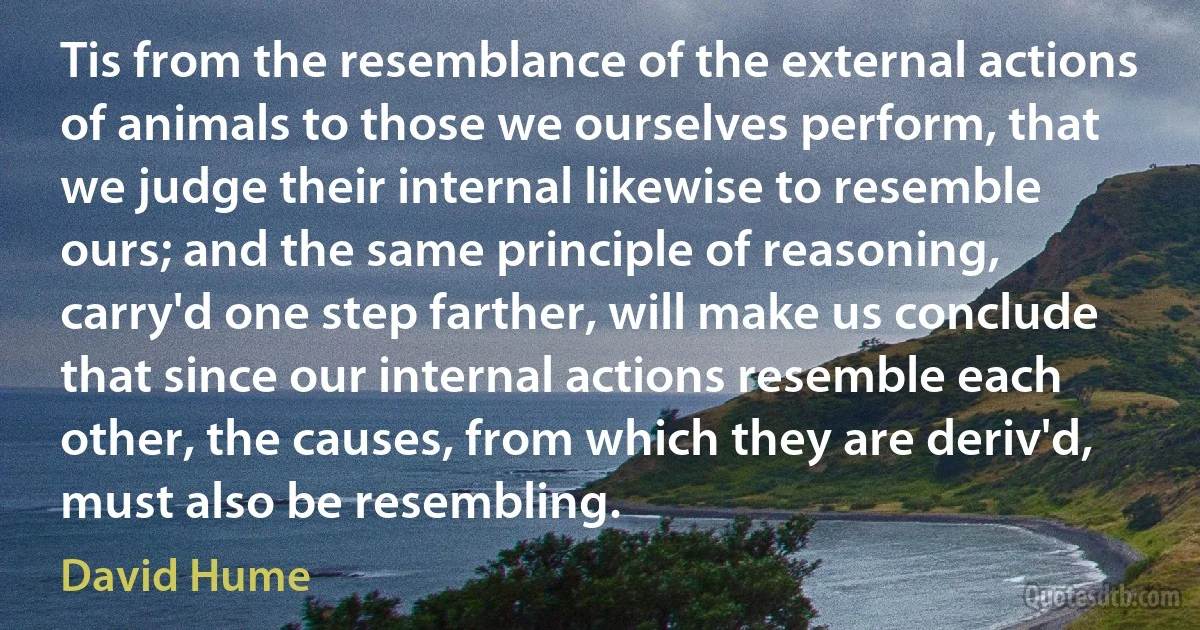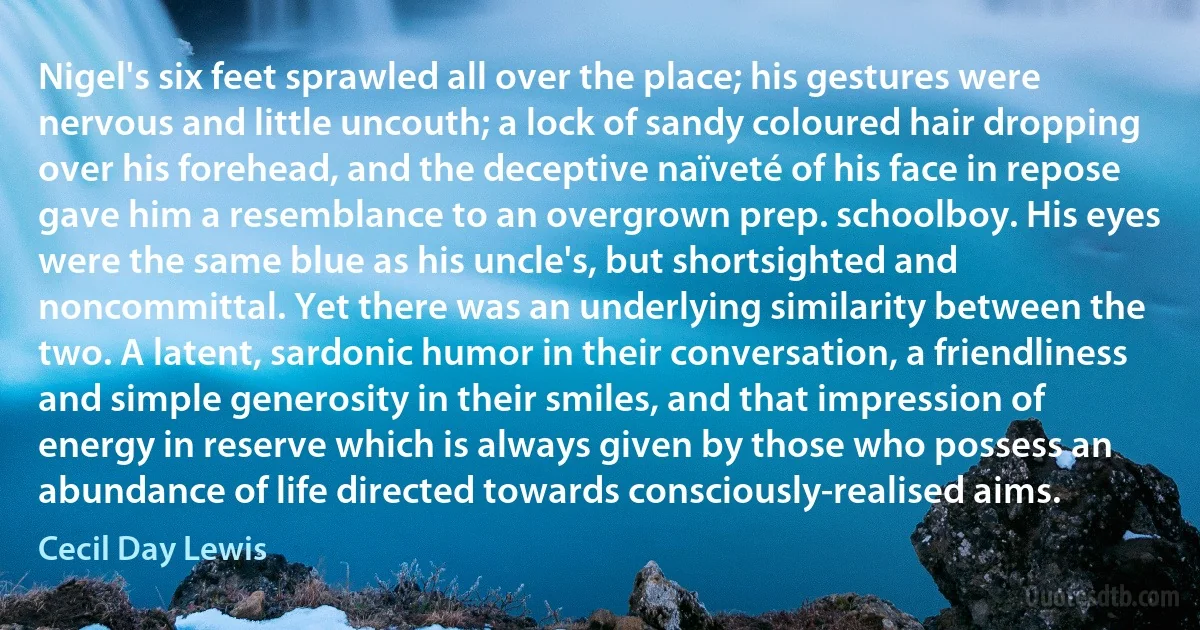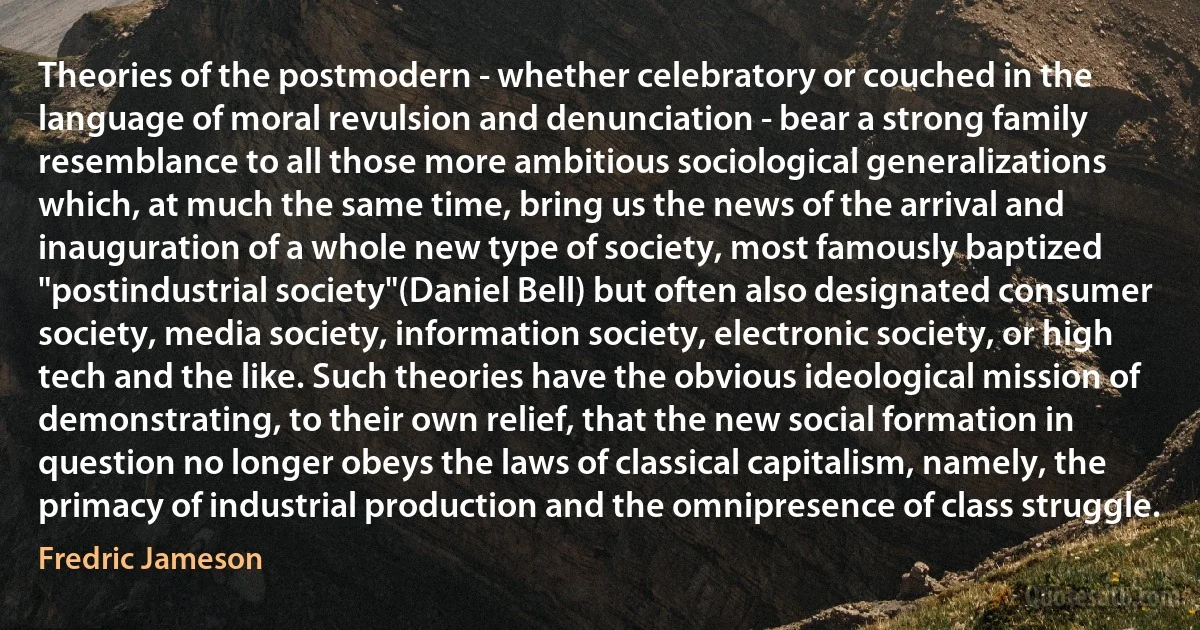Resemblance Quotes - page 3
Such a resemblance has to be through a natural way. You cannot succeed in resembling anyone, even if that man is your father. I was simply born like this. I did not have any intention to be similar to my father. For me, it is a big burden. People used to tell us it would be very easy for me to succeed because I am the son of Sihanouk. People adore the king and I look like him. It is not my achievement they are remembering, but the deeds of my father. On the contrary, if I fail the people would say, 'Oh you are the son, but you are not like your father.

Norodom Ranariddh
If we look deeply into such ways of life as Buddhism and Taoism, Vedanta and Yoga, we do not find either philosophy or religion as these are understood in the West. We find something more nearly resembling psychotherapy. ... The main resemblance between these Eastern ways of life and Western psychotherapy is in the concern of both with bringing about changes of consciousness, changes in our ways of feeling our own existence and our relation to human society and the natural world. The psychotherapist has, for the most part, been interested in changing the consciousness of peculiarly disturbed individuals. The disciplines of Buddhism and Taoism are, however, concerned with changing the consciousness of normal, socially adjusted people.

Alan Watts
There is little in common between the organised parading of madness in the eighteenth century and the freedom with which madness came to the fore during the Renaissance. The earlier age had found it everywhere, an integral element of each experience, both in images and in real life dangers. During the classical period, it was also on public view, but behind bars. When it manifested itself it was at a carefully controlled distance, under the watchful eye of a reason that denied all kinship with it, and felt quite unthreatened by any hint of resemblance. Madness had become a thing to be observed, no longer the monster within, but an animal moved by strange mechanisms, more beast than man, where all humanity had long since disappeared.

Michel Foucault
The suggestion that words are symbols for things, actions, qualities, relationships, et cetera, is naive, a gross simplification. Words are slippery customers. The full meaning of a word does not appear until it is placed in its context, and the context may serve an extremely subtle function -- as with puns, or double entendre. And even then the "meaning" will depend upon the listener, upon the speaker, upon their entire experience of language, upon their knowledge of one another, and upon the whole situation. Words do not "mean things" in a one-to-one relation like a code. Words, too, are empirical signs, not copies or models of anything; truly, onomatopoeia and gestures frequently seem to possess resemblance, but this resemblance does not bear too close examination. A cockerel may seem to say cook-a-doodle-do to an Englishman, but a German thinks it says kikeriki, and a Japanese kokke-kekko. Each can paint only with the phonetic sound of his own language.

Colin Cherry
So hopelessly incapable was I of understanding better folk that I did not even know how to keep a servile tongue in my head. In a flash there appeared before my mind the difference between the two worlds in which we lived, this woman and I; although I was staying under her roof we were such poles apart from one another that it was only with half justification possible to classify us together as human beings; we were both vertebrates, certainly, even mammals, but there all resemblance ended; any human society of which both of us were members was merely an empty phrase.

Halldór Laxness
The person in the poem is a character like a character in fiction whom the poet has invented--without clothes or a family, or a place of birth, just a voice--to convey himself. Any resemblance he bears to the poet you meet on a signing line is slightly less than coincidental. Meeting the author is one of life's most reliably disappointing experiences, not because authors are such nasty people, but because you have already met them under the best possible circumstance--on the page.

Billy Collins
The Large Testament is a hurly-burly of cynical and sentimental reflections about life, jesting legacies to friends and enemies, and, interspersed among these many admirable ballades, both serious and absurd. With so free a design, no thought that occurred to him would need to be dismissed without expression; and he could draw at full length the portrait of his own bedevilled soul, and of the bleak and blackguardly world which was the theatre of his exploits and sufferings. If the reader can conceive something between the slap-dash inconsequence of Byron's Don Juan and the racy humorous gravity and brief noble touches that distinguish the vernacular poems of Burns, he will have formed some idea of Villon's style. To the latter writer – except in the ballades, which are quite his own, and can be paralleled from no other language known to me – he bears a particular resemblance.

François Villon
For the most part similarities of various degrees will occur in one perceptual situation; and then specific perceptual units will be formed not simply because their members resemble each other, but because their mutual resemblance is greater than is that of such members and any other parts of the situation.

Wolfgang Köhler
Between the one who counts the facts, grouped according to their resemblance, in order to know what to believe regarding the value of therapeutic agents and him who does not count but always says "more or less frequent," there is the difference between truth and error, between something that is clear and truly scientific and something that is vague and without value-for what place is there in Science for that which is vague?

Pierre Charles Alexandre Louis
It is impossible to care for each other more or differently than we care for the earth.
This last statement becomes obvious enough when it is considered that the earth is what we all have in common, that it is what we are made of and what we live from, and that we therefore cannot damage it without damaging those with whom we share it. But I believe it goes farther and deeper than that. There is an uncanny resemblance between our behavior toward each other and our behavior toward the earth. Between our relation to our own sexuality and our relation to the reproductivity of the earth, for instance, the resemblance is plain and strong. By some connection we do not recognize, the willingness to exploit one becomes the willingness to exploit the other.

Wendell Berry



